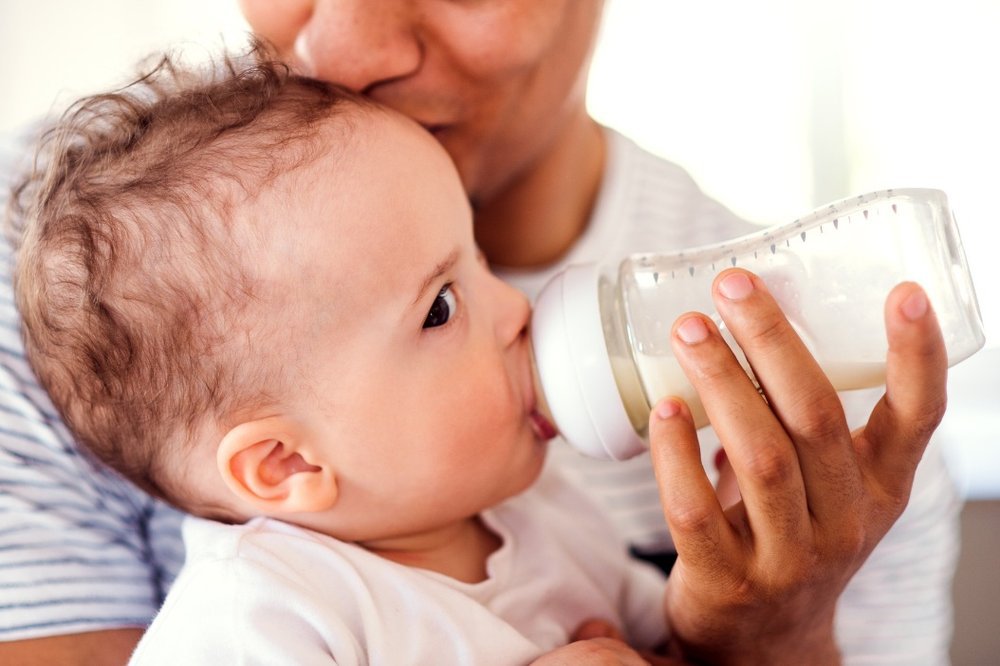Why is my breastfeeding baby refusing a bottle?
Bottle refusal in breastfed babies is a common phenomenon and for those families who choose for a bottle to feature as part of their breastfeeding journey it can be highly frustrating to be met with a baby who won’t take the bottle.
What is bottle refusal?
Bottle refusal is when a breastfed baby initially or continuously refuses to accept a bottle containing either expressed breastmilk or infant formula (1).
How common is bottle refusal?
In a 2020 study, Maxwell and colleagues surveyed 841 mothers whose breastfeeding babies had refused bottles. They found that 61% continued to refuse bottles or never accepted a bottle compared to 39% who eventually did.
In the same study a quarter of mothers who wanted to introduce a bottle to their breastfed babies and whose babies refused reported that it had a negative impact on their breastfeeding experience. They went on to say
“A ‘normalising’ of bottle refusal as a natural response by a healthy, breastfed baby could alleviate some of the negativity surrounding the scenario”
Why do so many breastfeeding babies refuse a bottle?
This is an area that is really under-researched but there are likely to be multiple possible reasons (2). Here are a few reasons why…
1. Differences between breast and bottle feeding
a) Breastfeeding is for much more than nutrition and babies build a strong and early attachment to their mothers at the breast in order to receive their milk but for much more in addition. That includes comfort, pain relief, reassurance and sleep to name a few. Subsequently when offered a bottle, a baby who has not taken a bottle before will not equate it to the same as what they know from the breastfeeding experience. This may reduce acceptance
b) Skills – it is well established that breastfeeding requires different physical drinking kills to that from a bottle. Mothers regularly report that when offered a bottle it appears that their baby just can’t work out how to drink from it.
c) Look and feel. As much as bottle companies marketing claims will suggest otherwise, bottles look and feel very different to the breast. Whilst there are things we can do when working on bottle acceptance to help bridge the gap between the two, they ultimately will look and feel different to your baby. This means compounds the sense that your baby doesn’t know what it is for or know what to do with it.
2. Babies are all different…
Depending on your baby’s personality they may be more amenable to switching between breast and bottle. However, some babies will be less willing or able. There isn’t too much we can do about our little people’s personality traits which may ultimately prove to be the determining factor in their bottle refusal.
3. Timing of introducing a bottle
There is evidence that introduction of bottles can impact negatively on breastfeeding and as a result healthcare professionals regularly recommend that bottles are not introduced until ‘breastfeeding is established’ or until at least 6 weeks post-partum.
I am of the opinion that delaying the introduction of a bottle may make it more likely that the bottle won’t be accepted. This is a reasonable hypothesis based on facts such as the stuck stops being reflexive from around 4 months and that self -regulation around appetite develops at around 6 weeks – which is an age where babies will likely assert themselves more when it comes to their feeding.
When it comes to introducing a bottle alongside breastfeeding (if that is your choice) I suggest waiting until your baby is latching and transferring milk well at the breast with appropriate weight gain and without the need for supports such as nipple shields. If this is achieved earlier than 6 weeks then it is fine to go ahead. If you are pumping and giving your own breastmilk in a bottle then wait till your breasts and milk supply have settled and there is no engorgement. Keep to just expressing the amount you need for now.
What helps breastfeeding babies to take a bottle?
Social media and online parenting forums are full of questions relating to bottle acceptance in breastfeeding babies and my blog ‘help, my breastfed baby won’t take a bottle’ is just one of thousands of resources full of tips to help. Unfortunately, when it comes to helping your baby to drink from a bottle there is not a one size fits all approach.
There is a lot of variability in which techniques help which babies and furthermore despite hearing from other parents that a specific bottle was key to breaking the refusal pattern, this is super-variable and most parents just end up with a whole cupboard full of bottles non-of which worked.
Despite bottle refusal in breastfed babies being common it doesn’t mean that it isn’t really hard for those of you wanting some independence, an option to support your return to work or an attending an event or an opportunity to involve others in feeding.
If you are looking for support in optimising the chance of your baby accepting a bottle as well as strategies to manage if your baby doesn’t then take a look at my top selling and very affordable online course.
References:
Maxwell, C., Fleming, K.M., Fleming, V. and Porcellato, L., 2020. UK mothers' experiences of bottle refusal by their breastfed baby. Maternal & Child Nutrition, 16(4), p.e13047.
Maxwell, C., Fleming, V. and Porcellato, L., 2023. Why have a bottle when you can have draught? Exploring bottle refusal by breastfed babies. Maternal & Child Nutrition, p.e13481.

